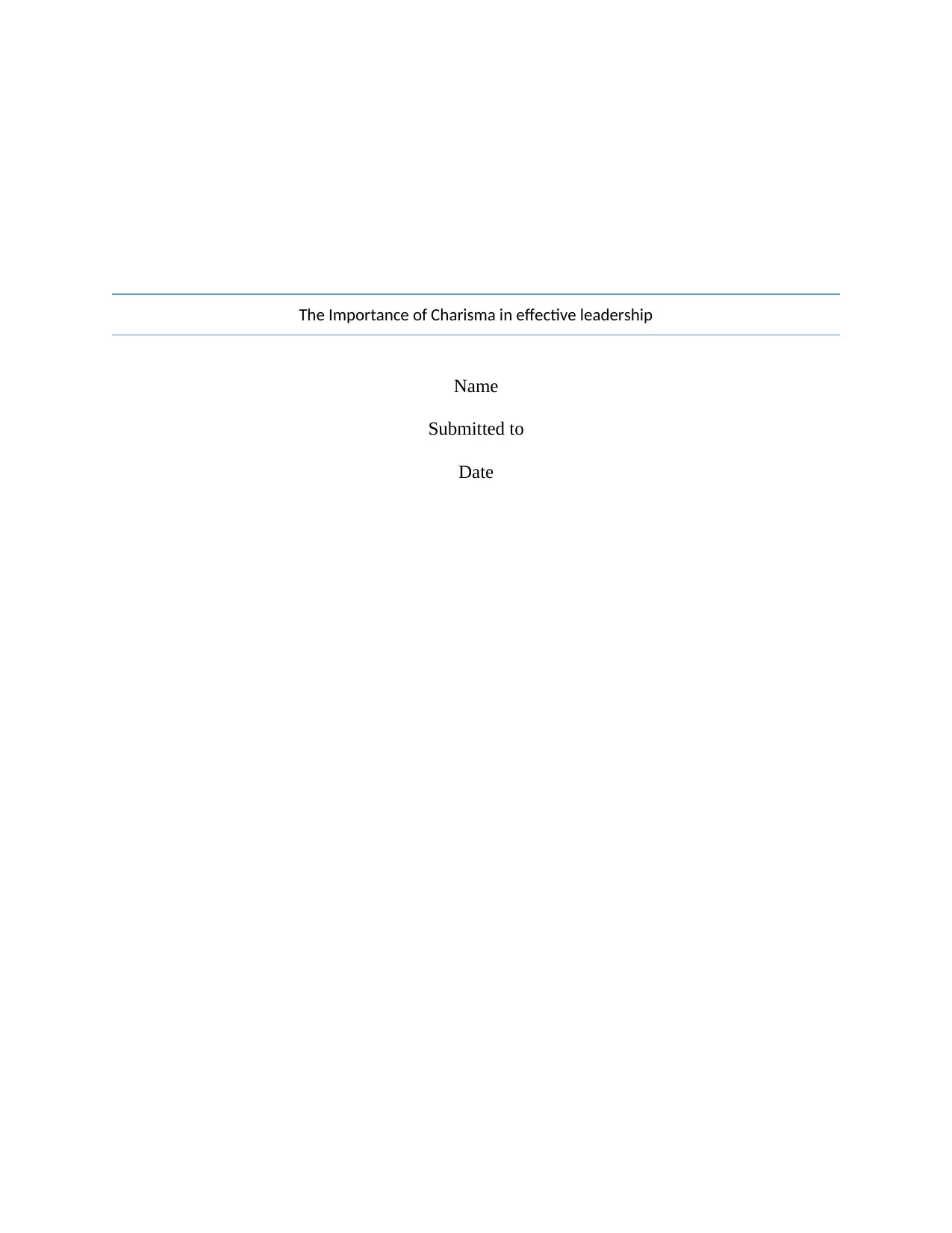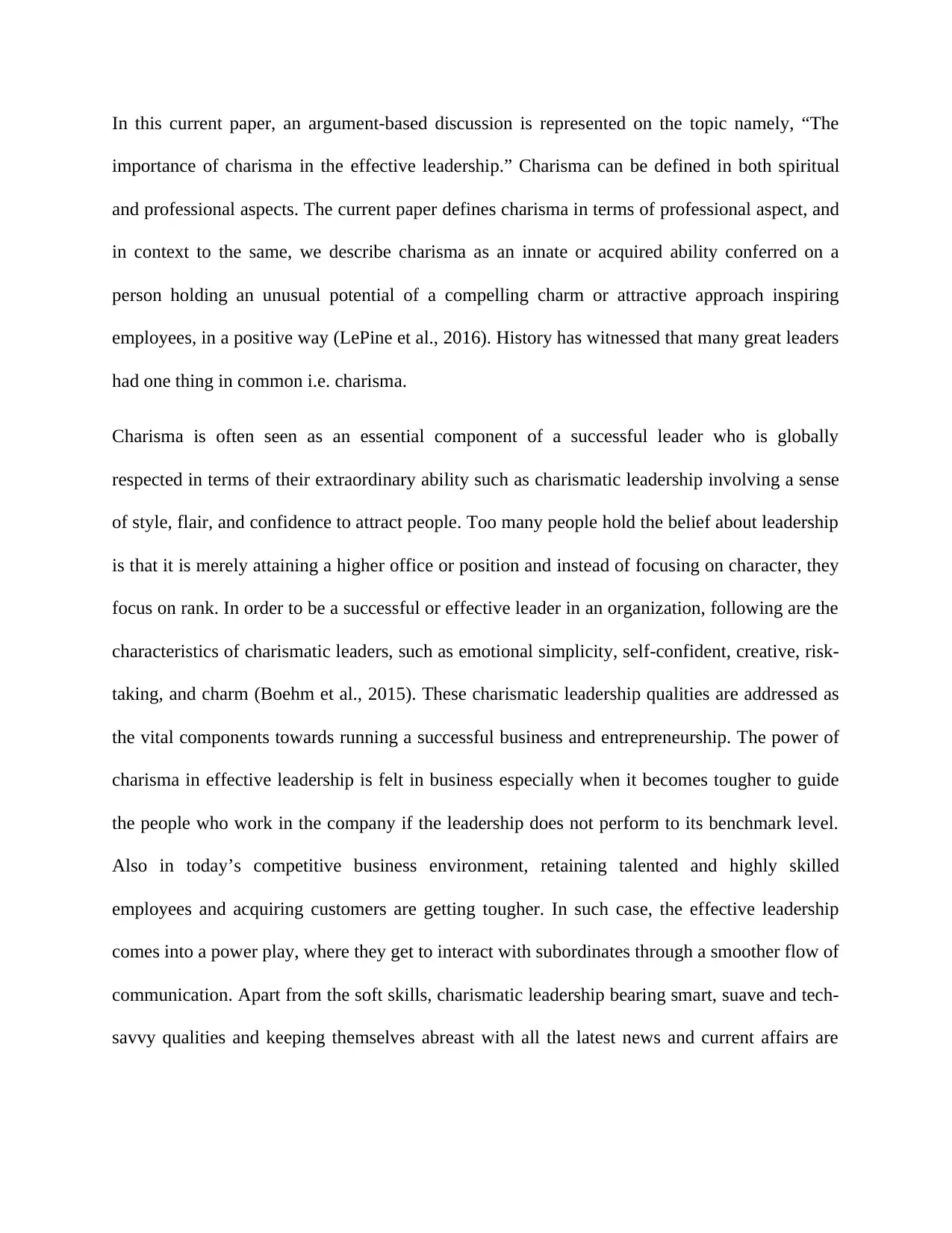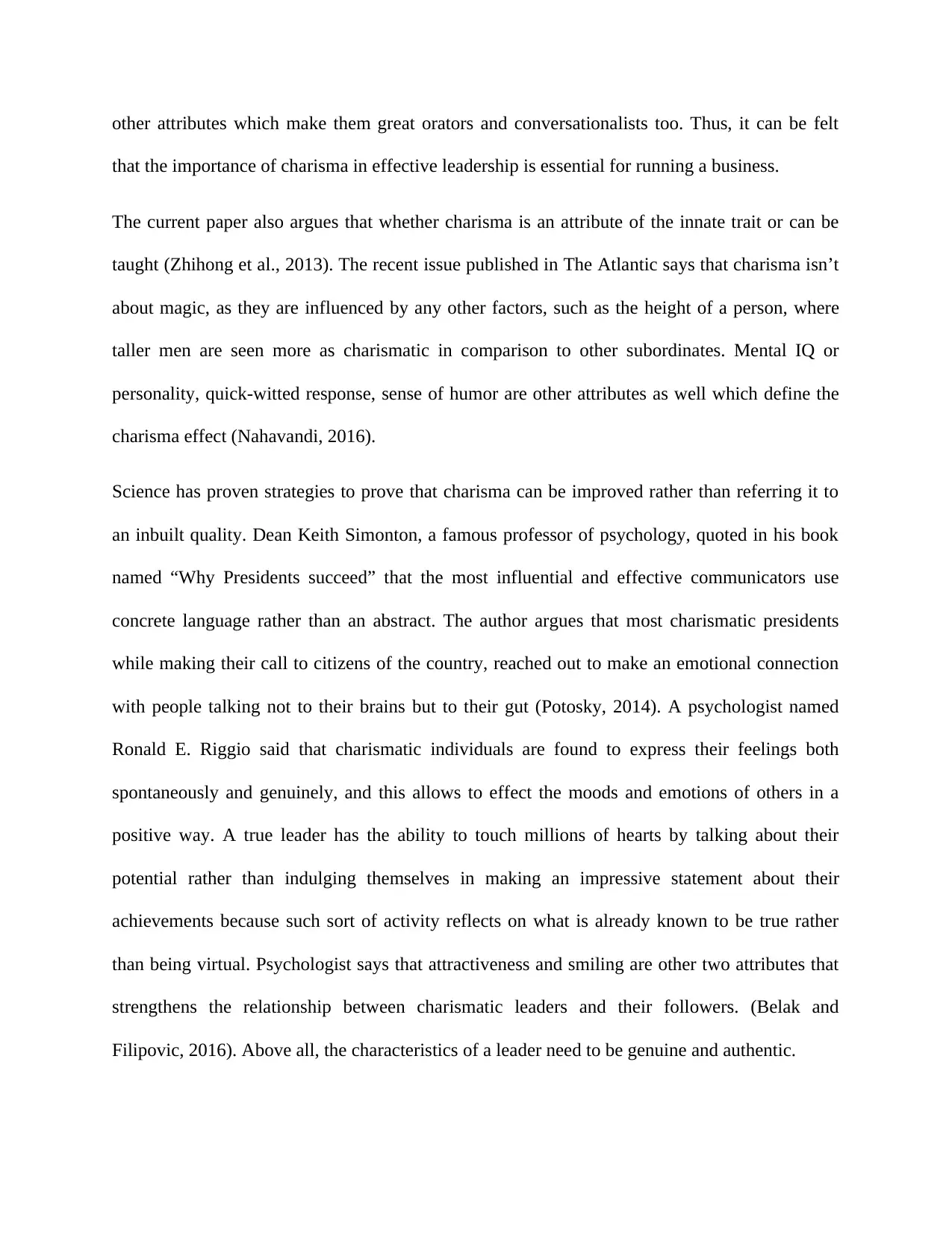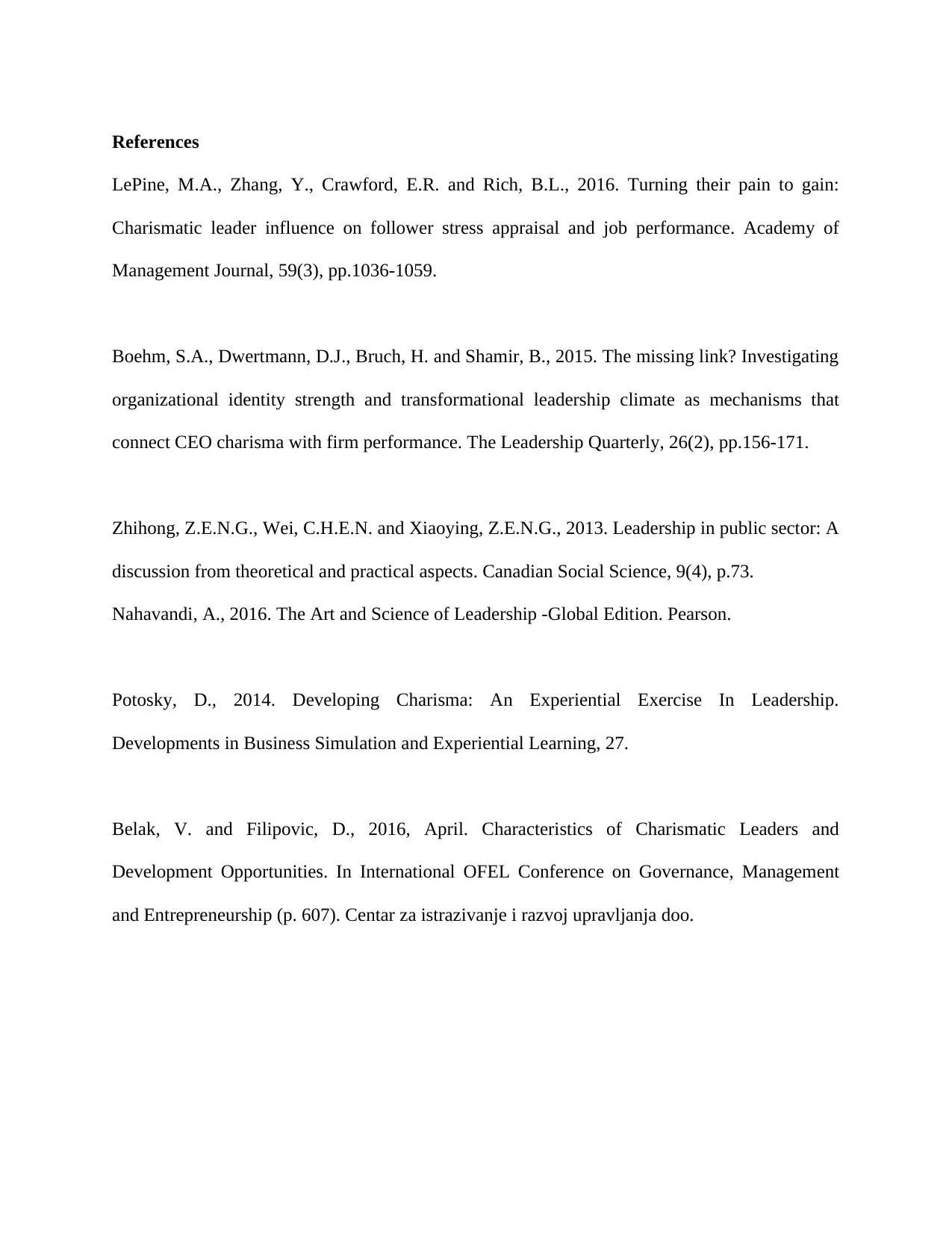Leadership and Charisma: An Analysis of Effective Management
VerifiedAdded on 2019/09/30
|6
|945
|81
Essay
AI Summary
This essay delves into the significance of charisma in effective leadership, defining it within a professional context as an innate or acquired ability to inspire employees. It highlights the historical prevalence of charisma among great leaders and outlines key characteristics of charismatic leaders, such as emotional simplicity, self-confidence, creativity, and charm. The paper argues for the importance of charisma in today's competitive business environment for retaining talent and acquiring customers. It also explores the debate on whether charisma is an innate or learned trait, referencing research that suggests charisma can be developed. The essay further discusses specific attributes like concrete language, emotional expression, and attractiveness that contribute to charismatic leadership, emphasizing the need for leaders to be genuine and authentic. The essay concludes by underscoring the vital role of charisma in running a successful business.
1 out of 6








![[object Object]](/_next/static/media/star-bottom.7253800d.svg)